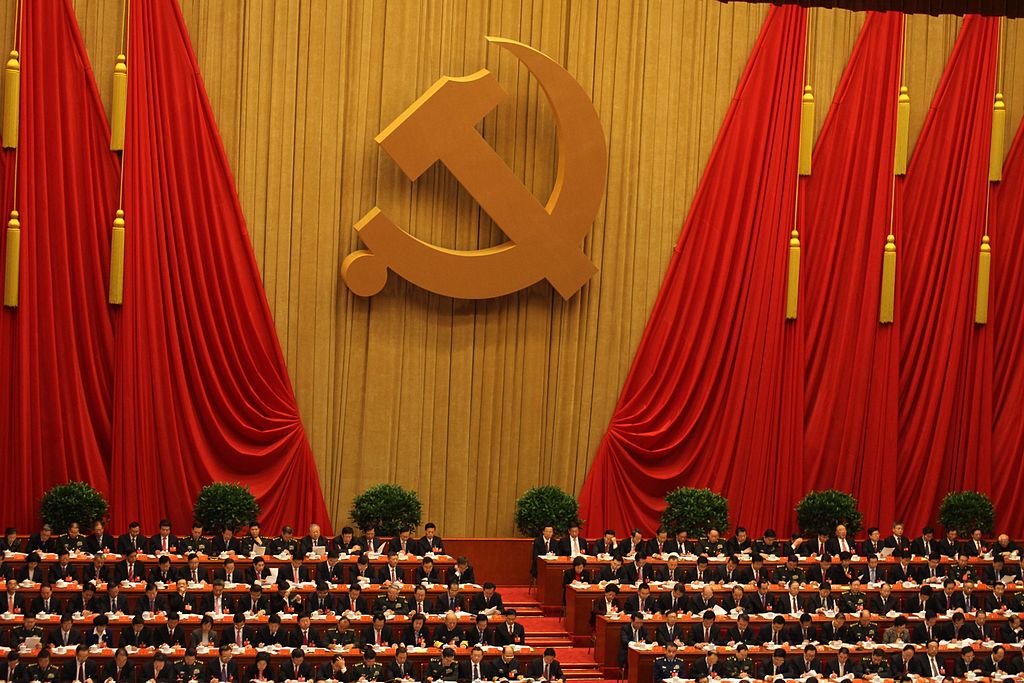The Key to Addressing Reforms When You Have No Intention of Implementation

To be fair, identifying necessary reforms in a country plagued by environmental issues, social and economic inequality, and political malfeasance is no easy feat. If Xi Jinping, Li Keqiang and their band of merry men released a statement with too many calls for reform and policy changes, the bar would be set unreasonably high. At the same time, if in the Third Plenum they called for insufficient changes there would be tremendous public outrage that might precipitate political activism.
In this case, being vague is the best approach. If China’s leaders prescribed legitimate reforms for their economy and political systems, just think of the instability it might prompt. The millions of migrant workers who are denied health insurance, educational opportunities, and economic freedom would get overexcited. Calls to curtail environmental pollution would give the millions of Chinese who live in cities with toxic PM 2.5 levels such a sense of relief that they might pass out on the streets during rush hour, dying of asphyxiation from exhaust fumes. Discussing democratization or even more transparency in government might distract Foxconn workers from assembling iPads. It is clear that rushing into reforms without proper thought and consideration is a bad decision for a country still in the early phases of development.
Engaging In Premature Reform is Dangerous
For now the safest way to engage in reform is by avoiding said reform at all costs. They say the longer you wait for policy changes the better they feel. The right time for reform implementation, however, remains unclear. One can’t simply engage in pre-hegemonic reform. At the moment, the party is simply waiting for that special generation to come along. The wait of course will be worth it.
China’s 18th Party Congress can’t be upfront about the fact that reforms may be only attainable in the far-away future. China’s 1.3 billion people are bursting with all kinds of desires to experiment politically, economically and socially. If China was too upfront about its intention to postpone reform, there might be a nasty schism and nationwide protests. And it isn’t that the Communist Party doesn’t want to reform with its people. It just doesn’t feel ready.
How to Lead on Your Population in the Most Effective Way
Sure you can’t engage in it, but you definitely can talk about it. Even just saying the word over and over can excite your countrymen enough without succumbing to their desires. It’s for this reason that in the Plenum Communiqué there was a lot of mention of reform and other words that are sure to excite its disgruntled, frustrated citizens. According to a press release by the Beijing News, no prior Third Plenum report had as many uses of the word ‘reform’.
The Plenum stressed that to comprehensively deepen reform, we must hold high the magnificent banner of Socialism with Chinese characteristics, take Marxism-Leninism, Mao Zedong Thought, Deng Xiaoping Theory, the important ‘Three Represents’ thought and the scientific development view as guidance, persist in beliefs, concentrate a consensus, comprehensively plan matters, move forward in a coordinated manner, persist in the reform orientation of the Socialism market economy, make stimulating social fairness and justice, and enhancing the people’s welfare into starting points and stopover points, further liberate thoughts, liberate and develop social productive forces, liberate and strengthen social vitality, firmly do away with systemic and mechanistic abuses in all areas, and strive to open up an even broader prospect for the undertaking of Socialism with Chinese characteristics.
Chinese readers must have gotten excited just reading this. “Persist…”, “concentrate…”, “stimulate…” This proactive language would leave any reform-deprived person brimming with optimism, if only for a while. One Chinese blogger wrote, “In the end it’s not important whether the document is consistent from beginning to end, because everyone can find what they need in it.” So long as Chinese citizens are satisfied with their government toying with reform, the Communist Party may be able to kick the can down the road and refrain from true policy changes for some time. Sure, citizens’ reform frustrations will continue, but at least everyone can be assured that no one is rushing into any big decisions.







